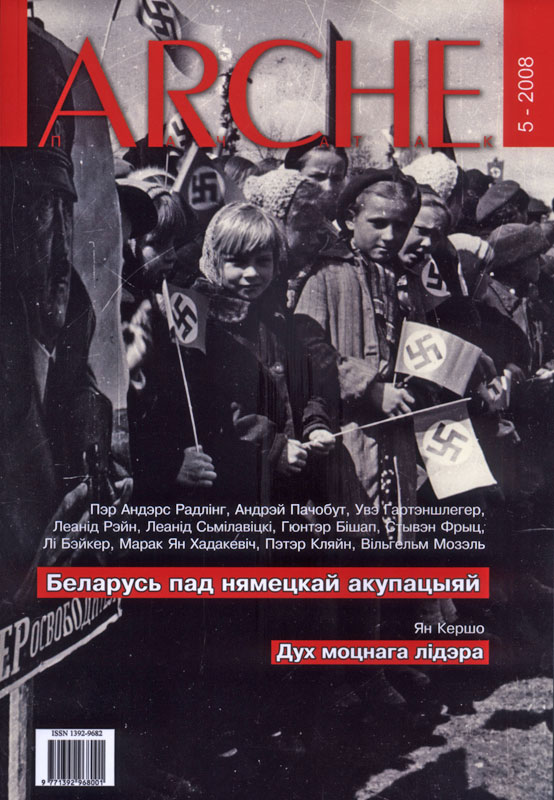Arche, Belarus’s only monthly magazine published in Belarusian faces closure after the state authorities froze its bank accounts and launched criminal proceedings against its editor.
Arche editor Valery Bulhaku was detained on 14 September while giving a talk in the city of Hrodna, a regional centre in western Belarus. More than 5,000 books and other publications were seized during a search of his home.
He has been accused of “illegal business activities”, and the Department of Financial Investigations is conducting an in-depth inspection of the financial activities of the magazine. Other investigators are searching for “extremist ideas” in the confiscated books and journals.
As is often the case in Belarus, state TV ran severely biased coverage of the story, screening supposedly investigative pieces for several days about how Arche’s publishers had not only broken company law but had violated the Criminal Code. The TV stories accused the publishers of “dubious interpretation of the history of Belarus during fascist occupation”.
According to Bulhakau, he and his magazine are being persecuted for publishing independent research on the history of Belarus. As well as the monthly magazine, this year Arche has published a dozen historical books. Bulhakau says:
For instance, not long ago we published a book on the political history of independent Belarus, covering the modern history of the country up to 2006. This topic is taboo in Belarus, that is why it attracted such interest
Bulhakau says that the authorities have targeted his intellectual magazine and independent publishing company as a mopping-up operation after closing down other oppositional activity.
The political field in Belarus has been ‘cleaned up’. Opposition parties are demoralised or pushed towards margins of civic life. So, now the authorities are turning their attention to independent publishing and research.
Most publishing in the Belarusian language collapsed or came under control of the state in the mid-1990s. But there are several independent publishing projects that have emerged in recent years. The authorities are keen to control the “ideological orientation” of their output in order to prevent the appearance of publications that contradict the official point of view on history. The books confiscated from Bulhakau are on “non-Soviet” aspects of Belarus history, such as the role of the secret services in the destruction of the traditional culture of the population of western Belarus during the Soviet era and life in Belarus under German occupation during the second world war.
This is not the first time Arche has faced trouble with the authorities. In October 2008 an issue of the magazine was declared “extremist” by a court and copies of the magazine were ordered to be pulped, though the decision was later rescinded.
“It looks like the mere existence of such a magazine irritates the authorities,” says Zhanna Litvina, who chairs the Belarus Association of Journalists. “They are trying hard to get rid of Arche because it is aimed at raising public awareness and addressing intellectual issues. It seems that intellectual development of intellect is the last thing in which the authorities of Belarus are interested.”
Bulhakau doubts the authorities will be able to prove the books and the magazine he has published contain extremist materials. But he says that the criminal prosecution for business malpractice is “the Belarus authorities’ favourite game”. He says:
They cannot close the magazine down on legal grounds, but they can impose enormous fines for “financial infringements” that we won’t be able to pay
He also believes that he could personally be prosecuted — again, not on political grounds but for supposed financial misdemeanours, just as the human rights activist Ales Bialiatski was prosecuted and jailed for supposed tax fraud.
Bulhakau’s colleagues from the Belarus Association of Journalists have launched a campaign of solidarity with the magazine, ARCHElp!. They urge everyone to write protest letters to the Belarus Ministry of Information and Department of Financial Investigations.
Andrei Dynko, the founder of Arche, says that the magazine’s closure would be a severe blow to Belarusian intellectual life.
Arche has been the only magazine in the Belarusian language of its type. If we lose it, the space for informed discussion in our country will get even narrower. Today it is Arche. Tomorrow it will be a literature magazine, an independent weekly or an internet portal. We need solidarity of all intellectuals and all journalists in this situation.
Yanina Melnikava is the editor of the Mediakritika.by website and a Board member of the Belarus Association of Journalists




